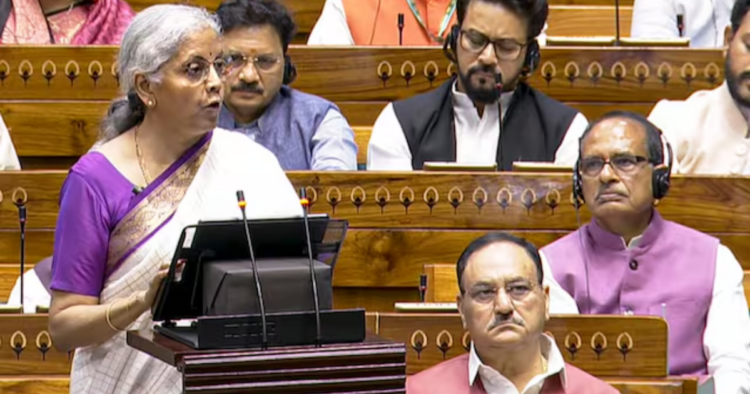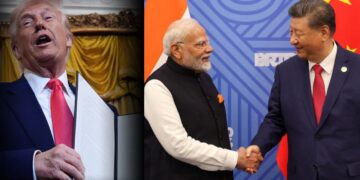The first budget of Prime Minister Narendra Modi’s third term has stirred excitement among Non-Resident Indian (NRI) businessmen based in the Gulf region. Presented by Finance Minister Nirmala Sitharaman, the budget outlines several key measures aimed at stimulating job creation, supporting rural areas, and boosting small and medium enterprises (SMEs).
The budget proposes a substantial investment of Rs 2 lakh crore over five years for job creation and skill development programs. This initiative aims to benefit 4.1 crore young people in India, offering internships and incentives specifically for first-time employees and women.
Dr. Sunil Manjarekar, President of GMBF Global Dubai, emphasized that these measures are designed to not only create jobs but also boost consumption, support rural and SME sectors, and maintain fiscal discipline.
Support for Rural Areas and SMEs
The budget includes a significant allocation of Rs 2.66 lakh crore for rural development. This funding will support various initiatives, including natural farming for 1 crore farmers over the next two years. In addition, there are increased credit guarantees and technology support for SMEs, with Mudra loan limits raised from Rs 10 lakh to Rs 20 lakh. This move is expected to provide a major boost to small businesses across India.
Investment in Education and Skills
Shakir Kantawala, Co-founder and Managing Partner of WingsWay Training Institute praised the government’s continued focus on education and skills development. The budget includes financial support for loans, which is seen as crucial for a large workforce and young career seekers. WingsWay Training Institute, which offers a wide range of skills training, welcomes these developments as they align with their mission to enhance professional growth.
The budget’s emphasis on increasing manufacturing capacity and implementing transparent rental housing policies has been welcomed by industry leaders. Gaurav Malhotra, MD of Hansgrohe India, expressed approval of the measures but noted disappointment over increased taxes on capital markets.
Hansgrohe India, a subsidiary of the German Hansgrohe Group, operates in Abu Dhabi and sees the budget’s focus on manufacturing as a positive step for the industry.
Higher Education Loans and Gold Duty Reduction
Chandrashekhar Bhatia, Chairman of GBF Middle East, highlighted the budget’s support for loans up to Rs 10 lakh for higher education in domestic institutions. He also mentioned the reduction of gold duty from 15 percent to 6 percent as a positive development for NRI families.
However, Bhatia suggested that a 30 percent income tax rate for earnings above Rs 20 lakh, rather than Rs 15 lakh, would better increase disposable income for the middle class.
Kamal Vachani, Group Director & Partner at Al Maya Group, praised the budget’s emphasis on domestic manufacturing and strategic tax incentives. The reduction in customs duties on mobile phones, chargers, gold, and silver is expected to stimulate consumer demand and benefit domestic manufacturers by lowering input costs. Vachani also believes that the reduction in gold import duties will help curb smuggling and streamline operations for electronics manufacturers.
Overall, the Modi 3.0 government’s budget has received a positive response from NRI businessmen in the Gulf, who see it as a promising framework for economic growth and development across various sectors.

















Comments